52
Followers
3
Following
Wounded Child Prostitute
I like some people so much, their whole way, and being, that I can't say a word for fear of wrecking it. So if you see me standing across the room, not looking, I'm probably in love with you. Damaged, benzo surfer...
Currently reading
Why We Love Sociopaths: A Guide To Late Capitalist Television
Guns, Germs, and Steel: The Fates of Human Societies
The Enormous Room
Uses for Boys
Elizabeth Bathory: A Memoire: As Told by Her Court Master, Benedict Deseo
The Price of Inequality: How Today's Divided Society Endangers Our Future
The Soul of the White Ant
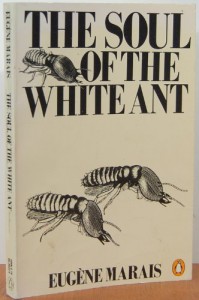 "The periodic organic condition, which should rouse the sexual sense, has become an absolutely useless, degenerate, pathological manifestation."
"The periodic organic condition, which should rouse the sexual sense, has become an absolutely useless, degenerate, pathological manifestation."
Recollections of the Golden Triangle
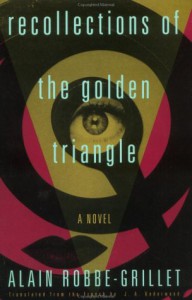 Like walking inside myself. Where I live, or even like a dream I often have where I am lost in the city, I can't find the right bus route, and the very air around me is golden. One comparison that comes to mind is being Diddy in Sontag's 'Death Kit'. But never mind, you either go or you don't. What you think or say about the recollections afterward is pigeon dandruff. We're talking about golden here.
Like walking inside myself. Where I live, or even like a dream I often have where I am lost in the city, I can't find the right bus route, and the very air around me is golden. One comparison that comes to mind is being Diddy in Sontag's 'Death Kit'. But never mind, you either go or you don't. What you think or say about the recollections afterward is pigeon dandruff. We're talking about golden here.
Real Boys : Rescuing Our Sons from the Myths of Boyhood
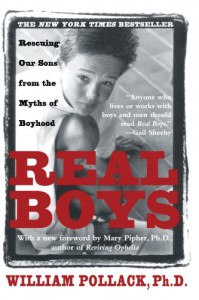 If you have boys, it's worth the read without a doubt. Some of Pollack's techniques of communication I've used throughout the years with my two (now teenage) sons.
If you have boys, it's worth the read without a doubt. Some of Pollack's techniques of communication I've used throughout the years with my two (now teenage) sons.
Shining
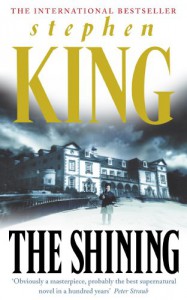 I read this a long time ago, and I can't think of any book that has scared the bewhatzits out of me as much. I remember actually putting it down because I was alone, it was night time, and I was freekin' out.
I read this a long time ago, and I can't think of any book that has scared the bewhatzits out of me as much. I remember actually putting it down because I was alone, it was night time, and I was freekin' out.
Imaginary Girls
 I’m Codependent with your Protagonist!! I loved the dreamy quality of a the narrative. At some points I was wanting more to happen in terms of plot. But I also realize that it might have taken away from the ethereal quality. Chloe and Ruby were like icons in my psyche already. So when I began to read about them, it was like the two sisters in my mind just came to life. Beautiful and enchanting. More please. And you can’t help but love the cover, am I right?
I’m Codependent with your Protagonist!! I loved the dreamy quality of a the narrative. At some points I was wanting more to happen in terms of plot. But I also realize that it might have taken away from the ethereal quality. Chloe and Ruby were like icons in my psyche already. So when I began to read about them, it was like the two sisters in my mind just came to life. Beautiful and enchanting. More please. And you can’t help but love the cover, am I right?
The Picture of Dorian Gray (Modern Library Classics)
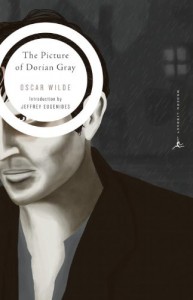 PODG gets unde3r your skin in a way, without you knowing it. I've read it a few times and have to read it again. It reminds me of the phrase monstrum in fronte, monstrum in animo. [“monster in face, monster in soul”] which I think I read originally in Twilight Of The Idols but it is attributed to Socrates??It's been years, but of course it is a classic - the theme deals with our strange fucked-up narcissistic society doesn't it? Don't mind me swearing, I'll take the low road. A hero of mine, Utah Phillips, a labor organizer, folk singer, storyteller, poet of great renown once said (paraphrased)... Being against using swear words is just one group of people trying to oppress another group of people in society. So yeah, it's fucked up, that narcissism. Take a look in the mirror baby.
PODG gets unde3r your skin in a way, without you knowing it. I've read it a few times and have to read it again. It reminds me of the phrase monstrum in fronte, monstrum in animo. [“monster in face, monster in soul”] which I think I read originally in Twilight Of The Idols but it is attributed to Socrates??It's been years, but of course it is a classic - the theme deals with our strange fucked-up narcissistic society doesn't it? Don't mind me swearing, I'll take the low road. A hero of mine, Utah Phillips, a labor organizer, folk singer, storyteller, poet of great renown once said (paraphrased)... Being against using swear words is just one group of people trying to oppress another group of people in society. So yeah, it's fucked up, that narcissism. Take a look in the mirror baby.
The Metamorphosis (Bantam Classics)
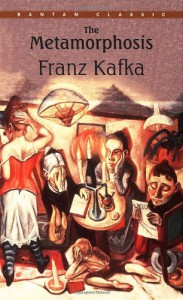 The third - a must for the abyss or the island. Penguin bound. Yes, I'd use the knife if I had to. See: http://www.goodreads.com/review/show/573530505
The third - a must for the abyss or the island. Penguin bound. Yes, I'd use the knife if I had to. See: http://www.goodreads.com/review/show/573530505
Nausea (New Directions Paperbook)
 Another that seeped into my cellular structure in a cafe while I chat up my former and future existences, concurring on all what consisted of being and nothingness there around them in my blood, my cells, my bones and then finally when they got up to leave, I left the world too...behind. I didn't look back, I've never felt a loss. It's only one big question mark really. And it is divine, putrid, heavy on the shoulders, and makes love to you in the night in your dreams, nightmares if they are such, and that is that. This is the second book I'd bring to the island. If it weren't offered, well, I'd use the knife. See: http://www.goodreads.com/review/show/573163062
Another that seeped into my cellular structure in a cafe while I chat up my former and future existences, concurring on all what consisted of being and nothingness there around them in my blood, my cells, my bones and then finally when they got up to leave, I left the world too...behind. I didn't look back, I've never felt a loss. It's only one big question mark really. And it is divine, putrid, heavy on the shoulders, and makes love to you in the night in your dreams, nightmares if they are such, and that is that. This is the second book I'd bring to the island. If it weren't offered, well, I'd use the knife. See: http://www.goodreads.com/review/show/573163062
Steppenwolf
 This is among a small number of books which stamped themselves onto my psyche indelible and sweet with the pain. If I were thrown to the abyss, an island or even to the dogs, all I'd want is a good sharp knife and a copy of this book, Penguin bound of course. "The lovely creature I would so treasure..."
This is among a small number of books which stamped themselves onto my psyche indelible and sweet with the pain. If I were thrown to the abyss, an island or even to the dogs, all I'd want is a good sharp knife and a copy of this book, Penguin bound of course. "The lovely creature I would so treasure..."
How Should a Person Be?: A Novel from Life
 I'm not revealing anything or plot busting here... As usual, I'll be including 'too much' of myself in my writing, and for that I have no remorse.For someone like myself, coming across an 'in the news' novel titled "How Should A Person Be?" is like looking in the mirror and seeing someone look back. A double take, like the monkey in the zoo, yes it has consciousness. I don't care much about what people are saying about the creative non-fiction aspects or the smatterings of references to self help novel. Self help is self hell, get an analyst for fack sakes. So Heti's novel immediately embraced me. I got through the first chapter okay - setups always kill me, then in the beginning of the second she hit me in all the places I half-hoped she would. I don't know why or how I expect something from a book or an author, but I expected her to get inside me. Her words and language, bits of her -- I caught glimpses and smatterings of reviews and even nuances of herself from her Twitter etc. I didn't want to know more. I don't read reviews before I read a novel, and hardly ever even bother checking them out afterward. By the end of the second chapter I had two pages of notes. Yes, she was delivering. What? First of all, something that nobody touches on but is everywhere: collective, phantom melancholy. I've been writing about this for ages, and now it is in the mainstream. Finally. Thank you. I knew Sheila would come through.Here's the phantom melancholy goods:Sheila and her fiancé giddily eavesdrop, crouching behind some 'false' rocks. I love that. Sheila says: "I saw and heard the lovely bride grow choked up with emotion as she repeated the words for richer or for poorer." Sheila feels vain, stupid, materialistic to get choked up on it--but they both admit they didn't know the bride's financial history. Here it shows their innocence in taking on the experience and later Sheila relives the borrowed melancholy in her own wedding and resents the fact that every time she thinks of her wedding vows she remembers the falseness of the memory, and it tainted her actual memory of her wedding. This brings the very idea of borrowed melancholy to a new level in fiction. Sheila is regurgitating it, remembering it over and over and it drives her mad that it ruins her own memory. It's soemthing that people barely admit to themselves. We want all our memories to be OURS to have our personal individual stamp on them. But as Sheila laments: "I felt ever uncertain, thinking back upon it, about whether my marriage could truly be called mine." Sheila is like the new existentialist, she recognizes the borrowed emotions she is experiencing, whereas what she ought to have done according to 'grown ups', was brush the whole thing aside and own her own experience. But this isn't how we are. Heti is helping to break that false sense people always pretended to have of themselves in the past. She's showing the weak, frail, nature of our perceptions, our existence. And it's all in the mind of a sweet girl named Sheila. Of course, in this world it is nonsense to believe that we are capable any more of having true, individual feelings. But I'm going way beyond what Heti intended I'm sure. Nonetheless, it is hinted at there, and it was the gateway to me wanting to finish the novel.I could write on longer about Heti's novel. I must say that I loved Sheila in the novel, that she was so questioning of herself in such an innocent and open way, yet she was an intelligent girl 'on the scene'. This seems new to me too. Usually people are trying so hard to come off as sophisticated that they don't reveal any truth in characters. Sheila was so real to me I could have leaned over and taken a drag off her cigarette. I forget if she smoked, but she should, just for a while at least.And all the reviews about the format in her book, the interweaving of the play etc etc., yes, oh wonderful intelligentsia, we all see that Heti is doing something different and succeeding at getting noticed thank baby jesus. I'm not sure about that Time 100 thing, is that for real? What is this Nobel Prize in a gumball machine week? I hope she wins anyway.I voted for her:http://time100.time.com/2013/03/28/time-100-poll/slide/sheila-heti/I have pages and pages of scrawl that I made while reading this and some notes on an interview I read, yes, while I was reading the book. Only because I was following Heti's page on FB and happened to see her link to it. I mean, even going to FB is a queer thing for me to do these days. The interview was okay, but at the end when Sheila Heti proclaimed brazen and beautiful, "I just find a lot of fiction boring. I have all my life." I could have kissed the screen. It was a really pretty shot of her in the article too. http://numerocinqmagazine.com/2013/04/02/how-should-a-writer-be-interview-with-sheila-heti-jill-margo/Oh, also, one of the things I did was read a part of her book while watching Cinderella, a Korean horror flick, the two of them together.http://www.youtube.com/watch?v=A-B-e3ljFNY btw: Korean horror and I are practically engaged.The book kept pressing things like Dunham's 'Girls', unwanted stamps on the back of my mind while I was reading, and also, Sarah Polley's, "Take This Waltz" with Michelle Williams. Michelle's character, Margot, kept trying to interface with Sheila in the book. I thought she'd walk right into a few of the scenes and take over. http://www.imdb.com/title/tt1592281/Okay, I'm stopping.
I'm not revealing anything or plot busting here... As usual, I'll be including 'too much' of myself in my writing, and for that I have no remorse.For someone like myself, coming across an 'in the news' novel titled "How Should A Person Be?" is like looking in the mirror and seeing someone look back. A double take, like the monkey in the zoo, yes it has consciousness. I don't care much about what people are saying about the creative non-fiction aspects or the smatterings of references to self help novel. Self help is self hell, get an analyst for fack sakes. So Heti's novel immediately embraced me. I got through the first chapter okay - setups always kill me, then in the beginning of the second she hit me in all the places I half-hoped she would. I don't know why or how I expect something from a book or an author, but I expected her to get inside me. Her words and language, bits of her -- I caught glimpses and smatterings of reviews and even nuances of herself from her Twitter etc. I didn't want to know more. I don't read reviews before I read a novel, and hardly ever even bother checking them out afterward. By the end of the second chapter I had two pages of notes. Yes, she was delivering. What? First of all, something that nobody touches on but is everywhere: collective, phantom melancholy. I've been writing about this for ages, and now it is in the mainstream. Finally. Thank you. I knew Sheila would come through.Here's the phantom melancholy goods:Sheila and her fiancé giddily eavesdrop, crouching behind some 'false' rocks. I love that. Sheila says: "I saw and heard the lovely bride grow choked up with emotion as she repeated the words for richer or for poorer." Sheila feels vain, stupid, materialistic to get choked up on it--but they both admit they didn't know the bride's financial history. Here it shows their innocence in taking on the experience and later Sheila relives the borrowed melancholy in her own wedding and resents the fact that every time she thinks of her wedding vows she remembers the falseness of the memory, and it tainted her actual memory of her wedding. This brings the very idea of borrowed melancholy to a new level in fiction. Sheila is regurgitating it, remembering it over and over and it drives her mad that it ruins her own memory. It's soemthing that people barely admit to themselves. We want all our memories to be OURS to have our personal individual stamp on them. But as Sheila laments: "I felt ever uncertain, thinking back upon it, about whether my marriage could truly be called mine." Sheila is like the new existentialist, she recognizes the borrowed emotions she is experiencing, whereas what she ought to have done according to 'grown ups', was brush the whole thing aside and own her own experience. But this isn't how we are. Heti is helping to break that false sense people always pretended to have of themselves in the past. She's showing the weak, frail, nature of our perceptions, our existence. And it's all in the mind of a sweet girl named Sheila. Of course, in this world it is nonsense to believe that we are capable any more of having true, individual feelings. But I'm going way beyond what Heti intended I'm sure. Nonetheless, it is hinted at there, and it was the gateway to me wanting to finish the novel.I could write on longer about Heti's novel. I must say that I loved Sheila in the novel, that she was so questioning of herself in such an innocent and open way, yet she was an intelligent girl 'on the scene'. This seems new to me too. Usually people are trying so hard to come off as sophisticated that they don't reveal any truth in characters. Sheila was so real to me I could have leaned over and taken a drag off her cigarette. I forget if she smoked, but she should, just for a while at least.And all the reviews about the format in her book, the interweaving of the play etc etc., yes, oh wonderful intelligentsia, we all see that Heti is doing something different and succeeding at getting noticed thank baby jesus. I'm not sure about that Time 100 thing, is that for real? What is this Nobel Prize in a gumball machine week? I hope she wins anyway.I voted for her:http://time100.time.com/2013/03/28/time-100-poll/slide/sheila-heti/I have pages and pages of scrawl that I made while reading this and some notes on an interview I read, yes, while I was reading the book. Only because I was following Heti's page on FB and happened to see her link to it. I mean, even going to FB is a queer thing for me to do these days. The interview was okay, but at the end when Sheila Heti proclaimed brazen and beautiful, "I just find a lot of fiction boring. I have all my life." I could have kissed the screen. It was a really pretty shot of her in the article too. http://numerocinqmagazine.com/2013/04/02/how-should-a-writer-be-interview-with-sheila-heti-jill-margo/Oh, also, one of the things I did was read a part of her book while watching Cinderella, a Korean horror flick, the two of them together.http://www.youtube.com/watch?v=A-B-e3ljFNY btw: Korean horror and I are practically engaged.The book kept pressing things like Dunham's 'Girls', unwanted stamps on the back of my mind while I was reading, and also, Sarah Polley's, "Take This Waltz" with Michelle Williams. Michelle's character, Margot, kept trying to interface with Sheila in the book. I thought she'd walk right into a few of the scenes and take over. http://www.imdb.com/title/tt1592281/Okay, I'm stopping.
Sometimes I Act Crazy: Living with Borderline Personality Disorder
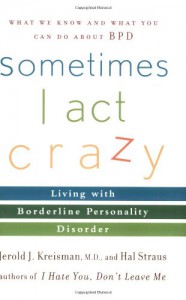 I'm just skimming 'I Hate You..." and "Sometimes I Act Crazy..." both because they have some nomenclature and familiar language and territory that's good for me right now. I need to be in this zone anyway for a while. It's like knowing there are 'others out there' by reading these books. I'll tell you, it's like opening the book, flipping around and just knowing your'e not a good match, the same way it happens when you go to a therapist for the first time. I've been dealing with BPD and other 'conditions' since forever. This is like milk therapy, drinking some to settle your stomach. I know that doesn't make sense, it couldn't possibly unless you were me.
I'm just skimming 'I Hate You..." and "Sometimes I Act Crazy..." both because they have some nomenclature and familiar language and territory that's good for me right now. I need to be in this zone anyway for a while. It's like knowing there are 'others out there' by reading these books. I'll tell you, it's like opening the book, flipping around and just knowing your'e not a good match, the same way it happens when you go to a therapist for the first time. I've been dealing with BPD and other 'conditions' since forever. This is like milk therapy, drinking some to settle your stomach. I know that doesn't make sense, it couldn't possibly unless you were me.
I Hate You, Don't Leave Me: Understanding the Borderline Personality
 I'm just skimming 'I Hate You..." and "Sometimes I Act Crazy..." both because they have some nomenclature and familiar language and territory that's good for me right now. I need to be in this zone anyway for a while. It's like knowing there are 'others out there' by reading these books. I'll tell you, it's like opening the book, flipping around and just knowing your'e not a good match, the same way it happens when you go to a therapist for the first time. I've been dealing with BPD and other 'conditions' since forever. This is like milk therapy, drinking some to settle your stomach. I know that doesn't make sense, it couldn't possibly unless you were me.
I'm just skimming 'I Hate You..." and "Sometimes I Act Crazy..." both because they have some nomenclature and familiar language and territory that's good for me right now. I need to be in this zone anyway for a while. It's like knowing there are 'others out there' by reading these books. I'll tell you, it's like opening the book, flipping around and just knowing your'e not a good match, the same way it happens when you go to a therapist for the first time. I've been dealing with BPD and other 'conditions' since forever. This is like milk therapy, drinking some to settle your stomach. I know that doesn't make sense, it couldn't possibly unless you were me.
Several Short Sentences About Writing
 The truth is, I'm still reading this. I am primarily and always will be a poet slash songwriter. The slash is meant to represent a keystroke partially. I began with poetry very young, then added short stories, and am now writing my first novel. The point of explaining that in this review is: if you are a poet you will gain a lot from this book in terms of learning to construct prose. For me SSSAW is like eating honey straight from the jar with a ruler. Even if you are a more prose than poet, no matter. Pick it up. I have the hardcover and I sit in bed reading it, giggling, and feel like I'm with the god of writing and poets looking through his personal bedside notes. Srsly.p.11 - "One way to keep sentences short is to keep the space between them as empty as possible. I don't mean the space between the period at the end of one sentence and the first world of the next. I mean the space between the period and the subject of the next sentence.That space often gets filled with unnecessary words. Most sentences need no preamble--or postlude."
The truth is, I'm still reading this. I am primarily and always will be a poet slash songwriter. The slash is meant to represent a keystroke partially. I began with poetry very young, then added short stories, and am now writing my first novel. The point of explaining that in this review is: if you are a poet you will gain a lot from this book in terms of learning to construct prose. For me SSSAW is like eating honey straight from the jar with a ruler. Even if you are a more prose than poet, no matter. Pick it up. I have the hardcover and I sit in bed reading it, giggling, and feel like I'm with the god of writing and poets looking through his personal bedside notes. Srsly.p.11 - "One way to keep sentences short is to keep the space between them as empty as possible. I don't mean the space between the period at the end of one sentence and the first world of the next. I mean the space between the period and the subject of the next sentence.That space often gets filled with unnecessary words. Most sentences need no preamble--or postlude."


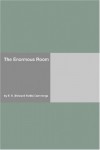


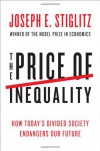




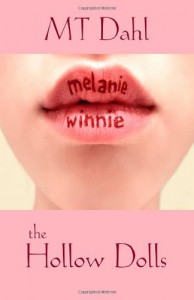
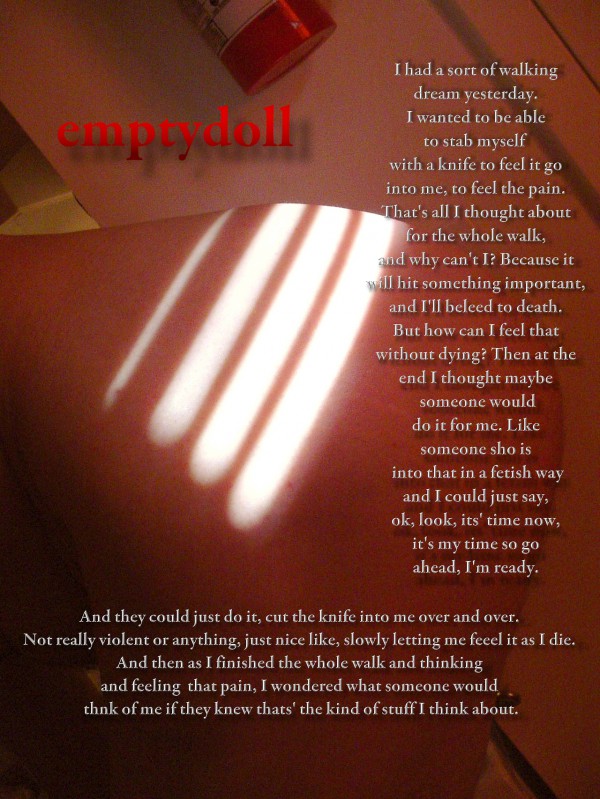
 1
1
